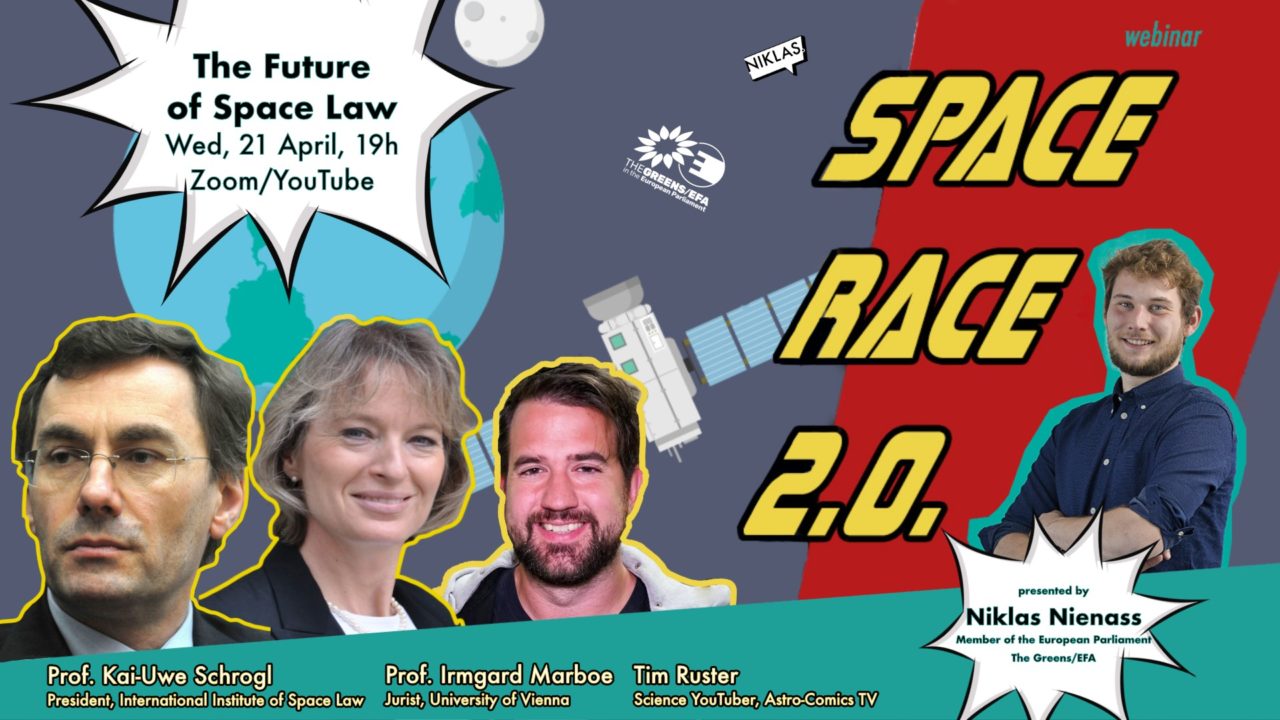What is allowed in outer space and what is not, is regulated in the Outer Space Treaty of 1967. The treaty states that outer space belongs to all of us and that all states have the right to explore it. All activities are to be carried out peacefully and for the benefit of all mankind.
But is this 54-year-old treaty still up to date today? Can it adequately address current developments such as the militarization of space, increasing private sector activities, and hazards posed by space debris? And if not – what then can the future of space law look like?
In the second part of my Space Race 2.0 webinar series, we discuss these questions with
- Prof. Irmgard Marboe, Professor of International Law, University of Vienna
- Prof. Kai-Uwe Schrogl, President International Institute of Space Law
- Tim Ruster, Science YouTuber, Astro-Comics TV
Space Race 2.0 – The Future of Space Law
Wednesday, April 21, 2021, 19:00 CET on ZOOM
Registration
